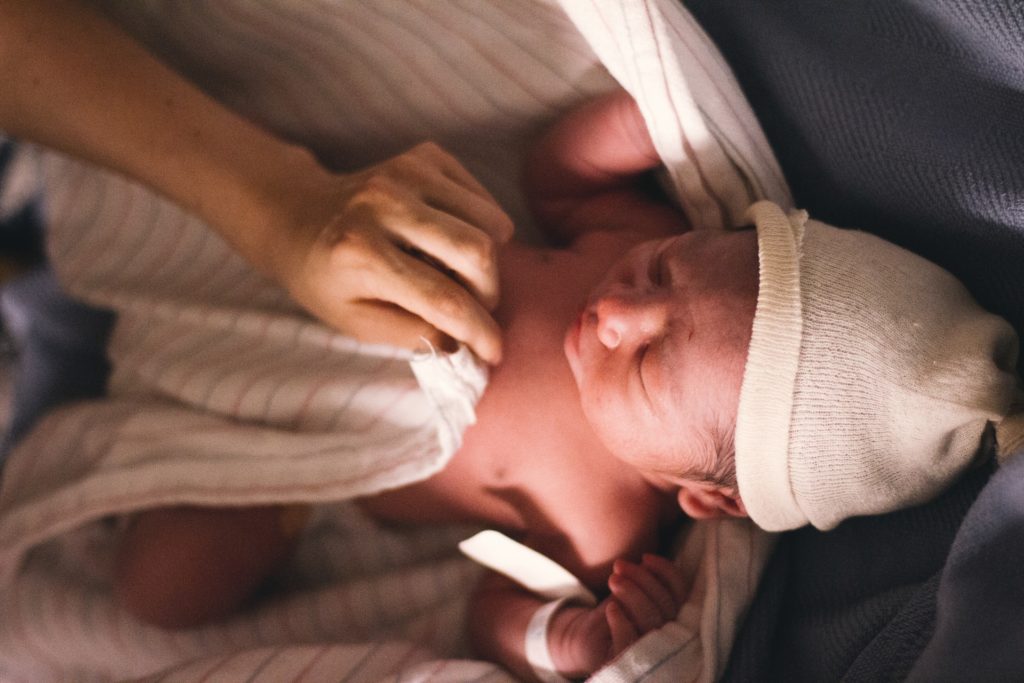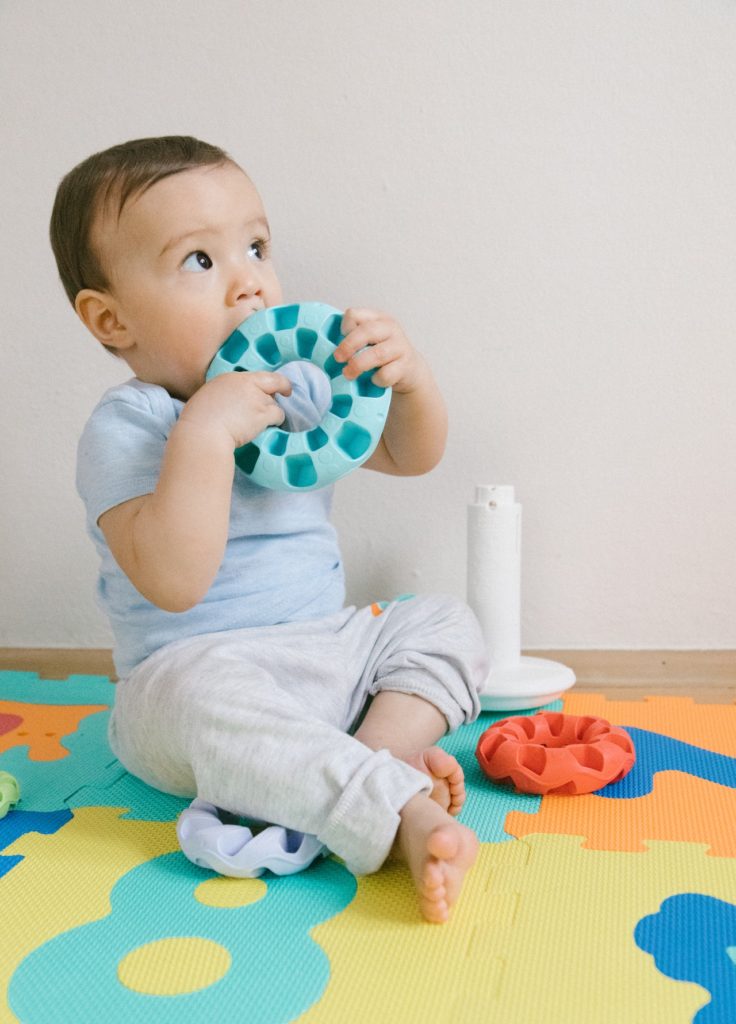If you are a young parent, an experienced parent, or are in a situation somewhere in between, you know that having kids in your life can be one of the hardest blessings ever! If you have spent any time around babies, you may know how frustrating it is when they cry at night and you have no way to ask them what in the world is wrong.
There are plenty of reasons that a baby might cry at night and need your attention. If you have ever struggled to figure out what is wrong with them, maybe even desperately googled through bleary, sleep-deprived eyes, this is the guide for you. Here are ten of the most common reasons your baby may be crying and how you can provide comfort.
The Dreaded Dirty Diaper

The first thing most people think to check when a baby is crying is if their diaper is wet or soiled. Luckily for the majority of humankind, most do not remember how uncomfortable sitting around in a dirty diaper can be, but you can use your imagination. Dirty diapers can also cause diaper rash and other problems, so changing is imperative.
Dirty diapers are no fun to change, but avoiding them is out of the question. Even if your baby manages to avoid diaper rash or any other painful ailment, not changing your baby’s dirty diaper can lead to a blowout. This is a highly descriptive term for when the contents of your baby’s diaper extend outside of their pants and make a huge mess.
Since babies do not have any way to communicate their needs to adults, they are resigned to screaming their heads off until they find relief from whatever it is that is annoying them. Granted, some experienced parents can hear the difference between a “Something hurts” cry and an “I need my diaper changed” cry.
Checking to see if the baby’s diaper is wet or full is a very quick and easy way to see if that could be what is bothering them. Since the convenience factor will likely mean a lot to you when you are exhausted in the middle of the night, checking their diaper first is the fastest way to resolve their problem so you can catch a few more Zzzzs.
What is Diaper Rash?
Related to dirty diapers is another possible reason a baby may wake you up with their crying at night: diaper rash. As gross as it is to discuss, if a baby sits in a dirty diaper for too long, the bacteria in their urine and feces can cause a seriously uncomfortable rash on their little bottom. It can get red and irritated, and even require medicated ointment.
Although sitting in a dirty diaper is not the only reason your baby can get a diaper rash, it is a major contributing factor. If you are not careful, not only could your baby be crying to get their diaper changed, but they could also be crying because their little tush is in pain. You think all baby cries are created equally? You would be wrong.
Diaper rash can cause red skin, blisters, and even a fever. Preventing diaper rash is much easier than treating it, so in addition to changing your baby’s diaper frequently, here are a few other ways you can prevent diaper rash on your baby:
- Use an ointment on their bottom that contains zinc oxide to provide a moisture barrier
- Let their little booty breathe for a little bit every day, and allow them to go diaper free on a cloth diaper or other protective surface
- If you use reusable or cloth diapers, make sure they are washed with gentle detergent and no fragrance dryer sheets
Diaper rash is a pain to deal with, and you likely have enough doctor visits to schedule with your baby, so adding another one due to something as preventable as diaper rash is silly. These quick and effective precautions should help keep your little one as happy and comfortable as possible, even if they do cry during every changing session.
Your Baby is Hungry

Another common factor that parents will first check when their baby cries at night is to see if the baby is hungry. As with the “My diaper is full” cry, the “I need to eat” cry is one of the most common. Sometimes babies just cry because it is in their nature to do so when they are unhappy, but making a bottle or trying to breastfeed them is a quick fix.
Even though a quick breastfeeding session or fixing a bottle of formula is likely the fastest way to get your baby back to sleep, there are other ways to make sure if your little one is hungry or not. Here are a few signs that your baby is hungry and needs to be fed:
- Your baby is sucking their fingers or hands, or they are generally making sucking motions with their mouth
- They are opening and closing their mouth a lot as they fuss
- They seem to be pretty awake and active (hunger pains can wake a baby up even if they are really fast asleep)
Feeding your baby will almost always help them to fall back asleep, and although there is not much in the way of guarantees, there is a reason a bottle is one of a parent’s first choices for helping their baby to stop crying.
What To Feed Your Baby
If you are a babysitter, neighbor, or are otherwise unfamiliar with the baby you are watching, there is a pretty good chance you will not be able to breastfeed the baby should they wake up hungry in the middle of the night. If you do not have access to their mom, there are still options for helping the baby eat something so they can go to sleep.
Most parents will leave behind a premade bottle of formula in the fridge, all ready to warm up and feed to the baby. If not, you can read the directions on the back of the container of formula how to prepare it for them. If for whatever reason you also do not have access to the formula, here are a few other things babies can eat:
- Premade baby food should always be your first option as the likelihood the baby will be allergic to it or will not eat it is very low
- Homemade banana puree
- Strained and pureed peas
- Any sort of baby biscuit or baby cereal- Cheerios work too!
This small list will likely provide you with some solution as to what you can feed the baby and get it feeling better and sleepy in no time. Luckily, we live in an age where most people are easily accessible, and hopefully the baby’s parents will be just a short phone call or text message away to help.
Your Baby Has Colic

Likely you know that when a woman is pregnant, she may have certain cravings to eat things that the baby needs to grow. Therefore, what the mother eats also feeds her baby. However, when speaking of breastfeeding, you may not know that whatever the mother eats after birth will be present in the milk she produces.
Everything you take into your body, from the foods you eat and the drinks you consume to the retinoids in the skincare you apply will show up in your breastmilk in one form or another. Some products can do more harm than others. If you breastfeed, there are a few foods that doctors recommend you stay away from to protect your baby, such as:
- Caffeinated teas, coffee, and sodas
- Alcohol and other drugs- illegal or otherwise
- Nicotine
There are some prescription medications that are okay to take when breastfeeding, so make sure you talk to your doctor first. Certain products like caffeine in breast milk can make your baby feel irritable and fussy, so if your baby wakes up in the middle of the night, it could be a result of something you ate.
Colic is a form of intense crying or fussiness in babies, and can be caused by a certain food, or an allergy either to breastmilk or something else. Colic can be very frustrating as it can seem like nothing you do can make the crying stop. If your baby exhibits these symptoms, pay special attention to their and the mother’s diet to rule out those factors.
The Baby Has Gas
Unless you are an expert parent, you may not know that your baby can take in too much air when they are crying or eating, and all that extra air can cause gas. Gas can be your baby’s worst enemy as all those little air bubbles can be quite painful and cause stomach discomfort to their little digestion systems.
If you have already checked your baby’s diaper and tried to give them a bottle and nothing seems to be working, you could try “burping” your baby to help alleviate or at least move around some of that excess gas. Because crying can add to a baby’s gas and their gas can make them cry, you may find yourself and your child in a vicious cycle.
The best thing to do when your baby is gassy is to hold them upright against your body and gently bounce up and down while supporting their head and gently patting their back. Massaging their belly and moving their legs around in a circle can also help to move the gas. If nothing else, pay special attention to if their diet is a contributing factor.
Some parents, especially from an older generation, tend to associate gas in babies with colic, but these two ailments that can discomfort your little one are not exactly the same thing. Although related, colic and gas usually belong in separate categories.
| Gas in Babies | Colic in Babies |
| Is not always a sign of colic, is a symptom of diet changes or swallowing too much air | Can cause painful gas, unstoppable crying, and other symptoms to occur |
| Is not a medical condition, however, you should discuss all symptoms with the pediatrician | Is a medical condition that may require a doctor visit if the symptoms are prolonged |
| Can occur as a result of the baby’s diet | Can occur as a result of the baby’s diet |
Your Baby Just Wants Mom

A baby will bond with its mother before it is even born. Babies have been studied and proven to recognize their mother’s touch, smell, feel, and especially their mother’s heartbeat. Sometimes when a baby wakes up in the middle of the night, all they want is to be close to their mom and to feel her comforting presence.
While this may be extremely sweet and high praise to hear, the notion becomes increasingly less tender the longer the night goes on. As your baby’s mother, and especially in the first few weeks of that baby’s life, you will feel pulled in so many different, but equally exhausting directions. Everyone needs sleep, especially moms.
If the baby wakes up in the middle of the night and seems to want you and no one else, there is little you can do to fix the situation but go to them and just hold them close. Also, if you feel so inclined, sing or speak softly to your little one and soothe them with your voice. Odds are, your baby will not care if you have a beautiful singing voice.
The best method of fixing this problem late at night is to attack it from multiple fronts. Fix a bottle, even if they do not seem to be hungry. Rock your baby in your arms or in a rocking chair, maybe read them a story, and just do everything you can to comfort them. Once they realize that Mom is not going anywhere, they will likely fall back to sleep.
Bored
Sometimes your baby may wake up in the middle of the night fussing for what seems to be no apparent reason. As silly as it may seem, they could be awake and crying for your attention because they did not feel sleepy, woke up, and felt bored. While this is easily the most mild reason your baby wakes up crying, there are things you can do to help.
An easy and quick fix is to put a baby mobile above their crib. Not only will this distract and soothe your little tyke, crib mobiles have been proven to give their developing brains a little boost. Many doctors agree that babies and toddlers need sensory stimulation and interaction to help their brains develop correctly.
Crib mobiles are great because they are close enough for the baby to see, while also remaining far away enough that they can not be reached, pulled down, or accidentally become a choking hazard. It is not recommended to keep loose blankets or stuffed animals in the crib of very small children.
It is also not a good idea to keep too many objects in or near your baby’s crib as scientists have discovered that too much stimulation can have the opposite effect you want. These suggestions should help your baby stay occupied if they wake up at night so you can stay asleep.
The Safest Way to Stimulate Baby

Stimulating your baby properly while they are alert and awake can help them fall asleep more easily and even sleep more deeply. A good night’s sleep is essential for your child’s development, as is proper stimulation of their brain and senses. Doctors have come up with several options for stimulating a baby’s brain, especially in recent years.
Since humans have five different senses, unless you are a young Haley Joel Osment, there are at least five different factors to consider when stimulating your little bundle of joy. When infants are born they can only see clearly from about 10-13 inches away from their face. Any farther, and their underdeveloped eyes can only make out vague shapes.
| The Five Senses | Infant Stimulation (Newborn-6 mo.) | Baby Stimulation (6 mo. and on) |
| Sight | Use black and white distinct patterns,10-13 inches away | Use bolder and brighter colors, 10-13 inches away |
| Smell | Introduce smells one at a time to avoid allergic reactions | Introduce smells one at a time to avoid allergic reactions |
| Taste | Infants only need breastmilk or formula exclusively until 6 mo. | Ask your doctor what new foods to introduce to baby |
| Touch | Babies find firm and gentle strokes to be soothing | Use differently textured objects and fabrics to stimulate baby |
| Sound | Talk, sing, and read to your baby. Use musical/rattle toys | Talk, sing, and read to your baby. Use musical/rattle toys |
There are so many options for what you can do to help your baby’s brain develop properly, and the above table lists only a few ideas. Letting your baby sit on your lap so they can look around is always positive, and changing up the routine with different books and toys will ensure your child remains alert and interested.
It is likely that your baby will let you know when they have had enough of the brain and sensory stimulation. If your baby is acting tired or seems to lose interest with what you put in front of them, it is a good sign that they are done and are ready for a break or even a nap. These tactics and practices should help your baby sleep better at night.
Scared
Although this circumstance is a little more common in toddlers, sometimes your child will wake up crying because they had a bad dream. Your little one knows that mom or dad are a safe place to fall and that you or your partner can help them feel better, so it is inevitable that they will need one of you to feel better.
Babies are born with certain reflexes like a sucking motion when something is in their mouth, or the desire to grasp onto a toy or your finger if placed in their hand. If you lay your baby down in their crib, you may notice that although they were just asleep, they startle themselves awake. This is likely because of what is known as their startle reflex.
The best way to work around the inevitable startle reflex is to hold your baby as close to you as possible as you lay them down so they do not feel any sort of falling sensation. Some babies also like the feeling of being swaddled as it makes them feel safe and reminds them of the womb. Swaddling can help your baby sleep longer too!
Although it can be frustrating to wake up to your baby crying, or have them startle themselves awake just as you were putting them down, all you likely will have to do when they are scared is rock them, give them some comfort, maybe a bottle of warm formula, and they should go right back to sleep. A little human touch works wonders!
Sick

Unfortunately for little babies, illness is just a part of being human and being alive. It is so heartbreaking to see your little one suffering any sickness, especially when you can not explain to them that the pain is temporary or you are just trying to help them to feel better. If your child is crying at night from illness, there are a few things you can do.
If your baby has a low grade fever (under 101 degrees), it is not necessarily a reason to take them straight to the doctor. Unless the fever persists more than three days, there is plenty you can do at home. Try to keep them cool by undressing them and wiping them down with a wet, tepid cloth. Encouraging drinking fluids is a must as well.
Your typical cold or flu will likely require Infant’s or Children’s Tylenol and lots of fluids. Running a humidifier in their nursery can help with any congestion, and again, all the fluids will help flush out the problem. If your baby is over the age of 12 months, try giving them Pedialyte or another electrolyte drink to keep them hydrated.
Earaches are another pesky baby bug, but doctors have become less aggressive in recent years with prescribing antibiotics for them. Tylenol and lots of fluids should help more than anything. Rocking your baby and giving them lots of comforting touch will help them to feel better as well, and hopefully they will go right back to sleep for you.
Their Sleep Schedule is Off
A parent’s worst nightmare: their baby sleeping too long during the day and avoiding going to sleep at night. Well, maybe not a parent’s worst nightmare, but moms and dads do dread this! If your baby seems to be awake and alert at night when they should be sleeping, it could be because their sleep schedule is off and they are simply not sleepy.
Unfortunately for you, if your baby just is not feeling sleepy and has no desire to rest, there is little you can do other than wait until they are tired enough to go to bed, and sit up and watch or play with them until they do drop off. You can also try some other tactics in this article to try and make your baby feel sleepy, such as:
- Give your baby a bottle or breastfeed them
- Rock your baby
- Sing a lullaby or talk to your baby
- Play some soothing music for them
Teething

Cutting a tooth for your baby can cause any and all symptoms from a low fever to diarrhea to disrupted sleep. As likely you already know, disrupted sleep in your baby can cause the symptom of disrupted sleep for you as well! If your baby is awake at night, fussy and crying because they are teething, there are ways you can help.
Massaging their gums, especially with a cold, wet washcloth can really help to provide some relief for your bundle of joy. Teething can be painful and frustrating for a little baby, so anything cold that is safe to be in your infant’s mouth is going to help numb the pain. After washing your hands, you can manually massage their gums as well.
Depending on your baby’s age and after you have begun to introduce them to solid foods, chilled fruit or homemade fruit popsicles can help cool down their irritated mouth. Consult with your doctor as to what fruits and preparation methods are appropriate for your child first.
Teething can even cause an excess of drool for your baby, so making sure their face is kept dry with a soft and gentle cloth will help prevent any rash or skin irritation. If nothing else, simply having mom or dad to comfort them when they are fussy and in pain at night will help your baby feel better.
Recent Posts
Having twins can be scary, overwhelming, and hard. But, it's also beautiful, fun, and adorable! Let's focus on the positives with these cute and funny stories about raising twins. Comment which one...
Newborn photography is a beautiful way to capture the fleeting moments of your baby’s earliest days. These precious photos become cherished keepsakes, encapsulating the joy and tenderness of...
